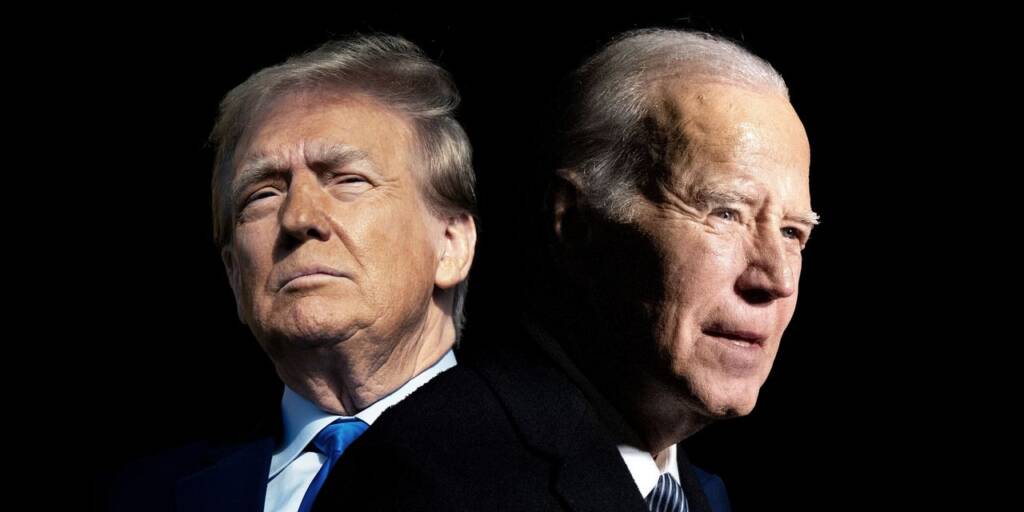Joe Biden’s strategy for the upcoming election centers on depicting Donald Trump as a significant threat to democracy, aiming to resonate with liberal and woke voters who prioritize democratic values. Hillary Clinton recently characterized Trump in The New York Times as “a convicted criminal seeking revenge,” reinforcing past criticisms of him undermining democratic institutions. The current administration has adopted Clinton’s portrayal of Trump, laying the groundwork for a campaign focused on highlighting the perceived risks he poses to democracy.
Political advisor Mike Donilon asserts that the January 6 Capitol riot will play a crucial role in the 2024 election, likening its impact to the aftermath of the September 11 attacks on the 2004 election cycle. Donilon predicts that the enduring images from January 6 will deeply resonate with voters, shaping their perceptions of Trump’s impact on American democracy, and potentially swaying voters away from supporting him.
However, analysts caution against drawing direct parallels between January 6 and September 11, suggesting such comparisons may oversimplify the intricate electoral dynamics facing Biden. George W. Bush notably benefited from a post-9/11 rally-around-the-flag effect, which significantly boosted his approval ratings. In contrast, Biden’s approval ratings currently remain below 40%, with recent polls indicating he is behind Trump in overall voter support.
Administration during Biden’s extensive tenure in Washington has tried to position Biden as an insider combating the populist appeal embodied by figures like Trump. Clinton tried to portray Biden as an empathetic leader, positioning him as a shield against populist threats to democratic norms. Biden’s electoral success in the 2022 midterms largely stemmed from highly engaged voters, rather than widespread public support. Less-engaged voters, crucial in presidential elections, often prioritize economic concerns over rhetorical defenses of democracy.
Polling data reveals Biden leads among 2022 midterm voters but trails Trump among the broader electorate. Young voters, independents, and Hispanics consistently prioritize economic issues over the preservation of democratic ideals in recent surveys. Border issue is a significant topic that garners Trump the support, he needs. Biden’s stupid stance on important issues like immigration, de-dollarization, and Ukraine aid fades his support and popularity in the US.
Progressive voices within Biden’s coalition advocate for a shift towards economic policies rather than solely attacking Trump. But, is Biden even listening to them? Biden’s emphasis on Trump as a threat to democracy may not resonate strongly with voters who prioritize economic stability and social welfare policies. Biden’s reluctance to moderate his stance on identity politics and border security issues will undermine his appeal to undecided voters.
Progressive activists often resist moderation, framing their resistance as a defense against perceived threats to democratic principles. Biden’s campaign rhetoric reflects a broader strategy emphasizing the catastrophic impact of Trump’s presidency on American democracy. The ongoing debate over Biden’s approach underscores the complex balance between national security imperatives, transparency, and democratic principles.
Critics argue that Biden’s campaign strategy risks alienating voters more concerned with pragmatic policy solutions to economic and social issues. Biden’s failure to address identity issues and border security will weaken his electoral prospects, particularly in swing states. Progressive calls for Biden to articulate a stronger economic message resonate with voters prioritizing tangible improvements in their quality of life over abstract fears of democratic decline. The resistance to moderation among progressive activists complicates Biden’s efforts to broaden his appeal beyond his core base of supporters.
Biden’s narrative of Trump as an existential threat to democracy reflects a broader trend of politicizing opponents in modern electoral campaigns. The electoral challenges facing Biden highlight balancing support based on fears of democratic erosion and addressing substantive policy concerns.
Biden’s strategy of framing Trump as a danger to democracy overlooks the nuanced priorities of diverse voter demographics, including young voters and independents. Polling data highlights Trump’s significant advantage over Biden on economic policy issues, crucial concerns for many voters.
The paradox within Biden’s campaign lies in his dual role as a defender of democratic norms and a policymaker addressing practical economic and social challenges. Biden will face serious challenges to sell his propaganda targeting Trump to voters.
Ultimately, Biden’s electoral strategy undergoes scrutiny for its reliance on portraying Trump as a threat to democracy, potentially overshadowing substantive policy discussions crucial to winning over voters.
